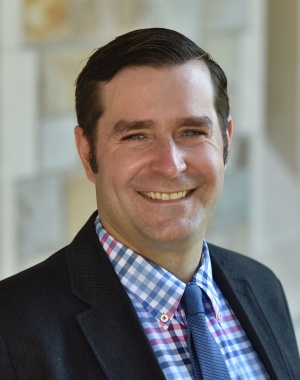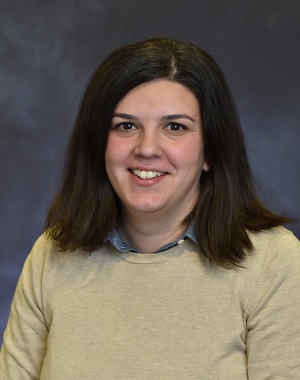
In Michigan, 18% of all community college students have completed some college but are still enrolled well beyond the expected time to a degree. Despite their substantial progress, about 36% of all “long-term persisting” students do not complete any degrees within nine years of entering college. Researchers from the Wayne State University College of Education and the University of Michigan’s (U-M) Education Policy Initiative (EPI) are teaming up to identify ways to support these long-term persisting students and help them graduate.
Through a $150,000 grant from the Joyce Foundation, investigators will explore the paths that long-term persisting students in Michigan take and the potential roadblocks they face. The project aims to better understand the characteristics of long-term persisting college students and identify existing programs and inform the creation of new initiatives to help these students earn degrees.
“This project seeks to increase graduation rates and close equity gaps by shedding light on a student population that, to date, has received comparatively little attention: long-term persisting college students, defined as those persisting beyond 150% of the expected time to degree,” said Stacey Brockman, principal investigator and assistant
professor of educational leadership and policy studies at Wayne State. “Long-term persisting community college students earn associate degrees at about twice the statewide average degree completion rate. Despite these students’ substantial progress, a large share still do not complete any degrees. Therefore, we are investigating whether they may need more or tailored supports to reach their educational goals.”
A former K-12 educator, Brockman understands how educational policies and environments shape students’ college and career readiness. She specializes in partner-engaged research with educational leaders and policymakers to inform educational program implementation, using both quantitative and qualitative methods to identify effective interventions for marginalized student populations. Brockman’s recent research has examined Detroit high school graduates' college access and pathways, the impact of career mentoring on college readiness, and community college coaching programs.
“The belief that we must support agencies’ current efforts to improve opportunities for their most marginalized students drives my research,” Brockman explained. “In this project, we hope to identify effective solutions that can benefit students who are so close to achieving their educational goals.”
Michigan’s Department of Lifelong Education, Advancement, and Potential indicates that 51.8% of residents have a skill certificate or college degree. Not having a college degree can make it harder for people to get good jobs and support their families.
In addition, there are significant differences in educational attainment along racial lines. According to the Michigan Department of Labor and Economic Opportunity, 26.2% of Black residents hold an associate degree or higher as compared to 43.5% of white residents. Study results may prove useful in increasing degree completion rates among
individuals from historically marginalized groups, reducing these disparities.
“We know these students have already invested years in their education, but they may still need additional support,” said Jasmina Camo-Biogradlija, co-principal investigator and EPI project manager. “We are looking forward to learning more about this population of students and exploring ways in which policies and programs can provide additional support as they complete their college journey.” Engaging long-term persisting students could be a key strategy that helps Michigan meet its college completion targets.
“Closing the completion gap for these students could be a critical step toward meeting the state’s goal of 60% of Michigan’s population with a degree or credential by 2030,” said Kevin Stange, co-investigator and professor of public policy and EPI faculty co-director. “This project adds to the portfolio of research at the Education Policy Initiative and the University of Michigan that partners with Michigan’s education agencies to better understand progress toward this important goal."
The research project, which began in the fall of 2024 and runs through August 2026, aligns with the vision and strategic plan of the Wayne State College of Education and the pillar of the university’s Prosperity Agenda focused on accelerating mobility for students and Michigan residents.
“This award from the Joyce Foundation allows Dr. Brockman and our colleagues from the University of Michigan to build upon their existing research about student success,” said Denise Taliaferro Baszile, dean of the College of Education. “Education is a key driver of economic mobility, and by providing these students with access to higher education, we can help to create a more level playing field, which can lead to better job opportunities, higher earnings and improved overall individual and community well-being.”
University of Michigan Gerald R. Ford School of Public Policy
The Gerald R. Ford School of Public Policy at the University of Michigan is a top-ranked
policy school dedicated to the public good. Building on America's first graduate public
service training program established in 1914, the Ford School offers master's degrees,
joint PhDs, an undergraduate BA, and various specialized programs. U.S. News &
World Report ranks it #1 for social policy and top-ten overall for public affairs.
Since 2012, the Education Policy Initiative at the Gerald R. Ford School of Public Policy
has generated and supported rigorous research to help policymakers make evidence-
based investments that address institutional and systemic barriers and improve
educational outcomes across the country.
Wayne State University College of Education
Anchored by its commitment to social justice, equity and inclusive excellence, the
College of Education offers degree programs in more than 25 areas, including applied
behavior analysis, elementary education, counseling, educational leadership and policy
studies, exercise and sport science, special education and sports administration. To
learn more, visit education.wayne.edu.
Wayne State University
Wayne State University is a premier urban research institution offering approximately
350 academic programs to nearly 24,000 students. For more information,
visit wayne.edu

